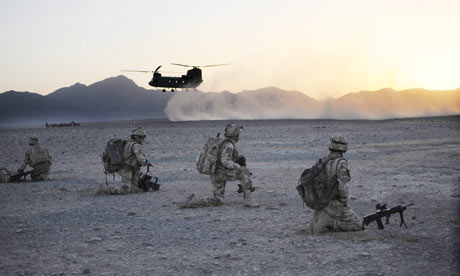| Letter from Washington |
|
|

Happily, in a welcome departure from that trend, Bangladesh got some unusual kudos this week from a reputed New York Times columnist for its impressive gains in social sectors like education and empowerment of women.
Describing his personal experience in an Op-ed piece last Thursday about how American tax dollars are misspent in developing countries in the name of bringing stability and prosperity and, in reality, what's happening on the ground, Nicholas Kristof, the Times columnist, cites an example of Pakistan.
"Since 9/11", he writes, "the United States has spent $15 billion in Pakistan, mostly on military support, and today Pakistan is more unstable than ever"
In contrast, he says, Bangladesh, which until 1971 was a part of Pakistan, has focused on education in a way that Pakistan never did. Bangladesh now has more girls in high school than boys. (In contrast, only 3 percent of Pakistani women in the tribal areas are literate.)
Those educated Bangladeshi women, Kristof continues, joined the labor force, laying the foundation for a garment industry and working in civil society groups like BRAC and Grameen Bank.
"That led to a virtuous spiral of development, jobs, lower birth rates, education and stability. That's one reason Al Qaeda is holed up in Pakistan, not in Bangladesh, and it's a reminder that education can transform societies", he writes.
Kristof's comments come in a broader context about how critical education is in transforming an underdeveloped society.
"When I travel in Pakistan, I see evidence that one group — Islamic extremists — believes in the transformative power of education. They pay for madrassas that provide free schooling and often free meals for students."
"They then offer scholarships for the best pupils to study abroad in Wahhabi madrassas before returning to become leaders of their communities. What I don't see on my trips is similar numbers of American-backed schools. It breaks my heart that we don't invest in schools as much as medieval, misogynist extremists".
In defense of his argument, Kristof warns that dispatching more troops to Afghanistan would be a monumental bet and probably a bad one, most likely a waste of lives and resources that might simply empower the Taliban.
In particular, he says, one of the most compelling arguments against more troops rests on this stunning trade-off: For the cost of a single additional American soldier stationed in Afghanistan for one year, we could build roughly 20 schools there.
"It's hard to do the calculation precisely, but for the cost of 40,000 troops over a few years — well, we could just about turn every Afghan into a Ph.D".
Of course, the defense industry and the hawks in the U.S. don't buy that. They argue that it's naïve to think that you can sprinkle a bit of education on a war-torn society. It's impossible to build schools now because the Taliban will blow them up.
To counter those hawks, Kristof says, it's still quite possible to operate schools in Afghanistan — particularly when there's a strong "buy-in" from the local community.
He cites various examples: Greg Mortenson, author of "Three Cups of Tea," has now built 39 schools in Afghanistan and 92 in Pakistan — and not one has been burned down or closed.
The aid organization CARE has 295 schools educating 50,000 girls in Afghanistan, and not a single one has been closed or burned by the Taliban. The Afghan Institute of Learning, another aid group, has 32 schools in Afghanistan and Pakistan, with none closed by the Taliban (although local communities have temporarily suspended three for security reasons).
In short, there is still vast scope for greater investment in education, health and agriculture in Afghanistan. These are extraordinarily cheap and have a better record at stabilizing societies than military solutions, which, in fact, have a pretty dismal record.
"In Afghanistan, for example, we have already increased our troop presence by 40,000 troops since the beginning of last year, yet the result has not been the promised stability but only more casualties and a strengthened insurgency. If the last surge of 40,000 troops didn't help, why will the next one be so different?", he asks.
Kristof, however, acknowledges that schools are not a quick fix or silver bullet any more than troops are. "But we have abundant evidence that they can, over time, transform countries, and in the area near Afghanistan there's a nice natural experiment in the comparative power of educational versus military tools".
Quoting a Unicef report, the Times columnist argues that for roughly the same cost as stationing 40,000 American troops in Afghanistan for one year, we could educate the great majority of the 75 million children worldwide who are not getting even a primary education.
"We won't turn them into graduate students, but we can help them achieve literacy. Such a vast global education campaign would reduce poverty, cut birth rates, improve America's image in the world, promote stability and chip away at extremism".
http://www.bdnews24.com/details.php?cid=1&id=145963&hb=3
Recognizing the Limits of American Power in Afghanistan
muslimsagainstsharia.blogspot.com/.../bangladeshs-madrassas-enrol-girls.html -

www.wluml.org/english/newsfulltxt.shtml?...x-157-563755 - Cached - Similar



www.defence.pk/.../bangladesh.../25226-ignorant-muslim-bangladeshi-celibrating-benglai-new-year-nauzubillah-minzalik.html - Cached - Similar
__._,_.___



































